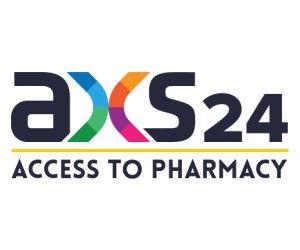
Q&A: Inside the Vanderbilt Specialty Pharmacy-AstraZeneca Collaboration

A siloed approach to care can worsen patient outcomes, but collaboration between one health system specialty pharmacy and a manufacturer led to better patient care.
Patient care doesn’t happen in a vacuum: pharmacists, manufacturers, prescribers, and other members of the health care team all come together to help patients treat and manage their diseases.
In a presentation at AXS24, the Asembia Specialty Pharmacy Summit, Autumn Zuckerman, PharmD, BCPS, CSP, Director, Health Outcomes at Vanderbilt Specialty Pharmacy, and her colleagues shared the real-world results of a collaboration between their health system specialty pharmacy and AstraZeneca. Zuckerman sat down with Drug Topics to share additional insights from the collaborative program.
Drug Topics: How does the siloed approach to patient care negatively impact pharmacist resources?
Autumn Zuckerman: The siloed approach to patient care—meaning that manufacturers work within a silo and how systems specialty pharmacists work within a silo. Really leads to a lack of understanding of the patient journey.
What does that mean? It means that patients who are prescribed specialty medication know from the time that they're prescribed that specialty medication to actually getting on therapy—which means insurance approval and [medication affordability, starting it, administering it appropriately, and being able to adhere and persist on therapy—there’s really a lack of insight for manufacturers on what that takes in a health system specialty pharmacy.
That leads to manufacturers trying to develop strategies, like hub models, to help support patients without really having a clear understanding of where the problems are…. A lot of these hub services are very helpful, and I think they all have the best of intentions, but oftentimes they can create additional barriers. One example there is setting up patient assistance programs that have very cumbersome processes to enroll patients in them. That leads to an impact on pharmacist resources, and really, the clinic resources, of trying to help patients; that process can be very challenging.
I think another way that these silos impact our resources is data collection. There are a lot of data reporting requirements from manufacturers—which are needed, and are helpful for them to see—but I think we have so much more data that we could provide, that's actually meaningful and useful. If we can break down those silos and really understand what data capabilities we have…and share that with manufacturers, we have a mutually beneficial understanding that leads to better data sharing.
In your presentation, you discussed a real-world collaboration between a health system specialty pharmacy and a pharmaceutical manufacturer. Can you provide a high-level overview of that collaboration for our audience?
We've had several
This medication has a lot of side effects that happen early on in treatment. We found that almost one-quarter of patients discontinued treatment, over half had to reduce their dose, and a lot of people—I think around 80%—had therapy interruptions.
We worked with AstraZeneca to develop what we call a tailored monitoring strategy, where we're calling patients at specific time points when we know that they're going to have [adverse] effects, based on what AstraZeneca shared with us. We called [the patients] and talked to them about their [adverse] effects. [We] compared before and after that tailored monitoring strategy, and we were able to reduce the number of dose decreases...and we were able to shorten the duration of interruptions, from 17 days to 7 days.
Discontinuations were the same, but we had fewer adverse event-related discontinuations. We really saw a huge benefit from the patient perspective, who appreciated that additional touchpoint and check in with the pharmacist, and pharmacists felt like they were able to make a pretty big impact during that check-in.
That is now our standard of care, and it really came from a collaboration, a discussion between the manufacturer who knew the drug well, and the pharmacist building that tailored monitoring strategy together to improve patient outcomes.
What were the top takeaways from this collaboration that other health system specialty pharmacists can implement in their own practice?
I think that it's really important when you're working with manufacturers to have goal alignment. A lot of times we have shared goals of improving patient outcomes, improving access to the medication, and really understanding that patient experience.
When you're designing a collaboration, particularly around outcomes research, [it’s important to] make sure that you are both doing it for the same reasons, and that you agree on what that project will be. If that's not there…maintain those open lines of communication and continue having those conversations until there is goal alignment. But, if you're trying to do a project that one or both of you don't agree to that can be very challenging.
I also think it's really important that health systems share their capabilities, particularly around data. [Questions like] What data do we have? How do we use it? How do we interact with patients? [can help] manufacturers understand what those capabilities are. When you say something like “electronic health record,” a lot of times they don't know what that means. So, sharing what data capabilities we have is really important for health systems specialty pharmacists.
I'd say listening and understanding the needs of the manufacturer partner you're working with [is also important]. Do they need to identify patients for their medication? Do they need to improve adherence? Do they need to improve patients being able to access therapy? Do they need to improve persistence? Take that time to understand what their needs are and try to meet them where they’re at.
AXS24, the Asembia Specialty Pharmacy Summit, was held April 28 to May 2 in Las Vegas, Nevada.
Newsletter
Pharmacy practice is always changing. Stay ahead of the curve with the Drug Topics newsletter and get the latest drug information, industry trends, and patient care tips.























